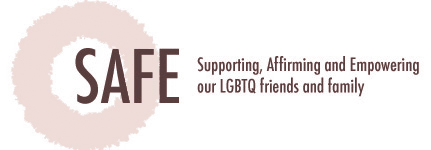Overcoming the initial shock:
Frequently Asked Questions for parents of gay persons
It is often a shock for parents to find out that their child is gay. Whether you are a mother or a father, whether you have a son or a daughter, whether you long long suspected something of the kind, or were completely surprised, finding out for sure can be a shock. The initial feelings are strong and confusing, and it will be hard to talk about it at first without anger and tears.
Although every family is different and every case individual, there are some commonly asked questions:
Q. Why did he or she have to tell us?
A. Many parents think that they would be happier if they didn't know. However, if you did not know, you would never really know your child. A large part of his or her life would be kept hidden from you. The fact that your son or daughter told you is a sign of his/her love and their need for your support and understanding. After all, who should know if not you, the parent?
Q. Why did he or she do this to us?
A. Many parents feel anger or resentment when learning of their child's homosexuality. This is based on the assumption that being homosexual is a matter of choice and that this decision was made perhaps to hurt them. In fact, gay people do not choose their sexual orientation. They simply are what they are. It is their true nature.
Q. What did we do wrong?
A. Most parents feel guilt when they first find out. After all, psychologists have told us for years that the way the child turns out is the parent's "fault". In fact, no parent has that much power over a child. No one knows as yet what "causes" any kind of sexuality, but it is widely accepted today that the a child's sexual orientation is set at a very early age, if not at birth.
Q. Will he or she get into trouble with the law?
A. In Singapore, being gay is not an offence. However, the homosexual act between males is a criminal offence. Even if it takes place between two consenting adults in the privacy of the home, the law considers it an offence. Government ministers however have said that the law will not be applied to consenting adults in private, and data from court cases indicate this policy is in effect. the law probably does not apply to females, though no case has yet come up to test it.
This law is in breach of the UN Human Rights Committee's ruling that discrimination on the ground of sexual orientation is a violation of human rights. Although the Singapore givernment no longer enforces the law actively, the continued existence of the law reinforces prejudice and discrimination in this country, causing emptional damage to gay people.
Q. Should we seek a psychiatrist to "cure" our child?
A. It is now generally acknowledged by the psychiatric community that homosexuality is not, as was previously supposed, a disease or illness which can be cured.
In December 1973 the American Psychiatric Association declared that homosexuality per se is not a mental disorder or disease. The American Psychological Association has taken the official position that it would be unethical to try to change the sexual orientation of a homosexual.
However, many people who are homosexual are so imbued with the prejudices of our society that they cannot accept their sexual orientation as normal. In such cases it may be helpful to get psychiatric or psychological help for the purpose of self-acceptance. Care must be taken, however, to select a therapist who is not prejudiced.
In Singapore, supportive counsellors are available at the Counselling and Care Centre.
Q. Should we tell our relatives and friends?
A. Parents who struggle with their own acceptance of their child's homosexuality often worry about other people finding out. How do you deal with friends and relatives asking: "Has he got a girlfriend?", or "When is she going to get married?"
First and foremost, you must not confide in anyone unless you have your child's consent. It is his or her life you are discussing, and he or she has the right to decide who should know and who shouldn't.
Second, you should not tell anybody unless you yourself have reached a point where you are not defensive about it. It takes time to learn to accept your child, and unless you can be positive, you will communicate your unhappiness or doubt to others. When you are ready, you might find it easier to discuss it with one person at a time.
- Susan Tang, for SAFE
Resources:
GayFamilySupport.com
OutProud.org
Yawning Bread
|

This comment has been removed by the author.